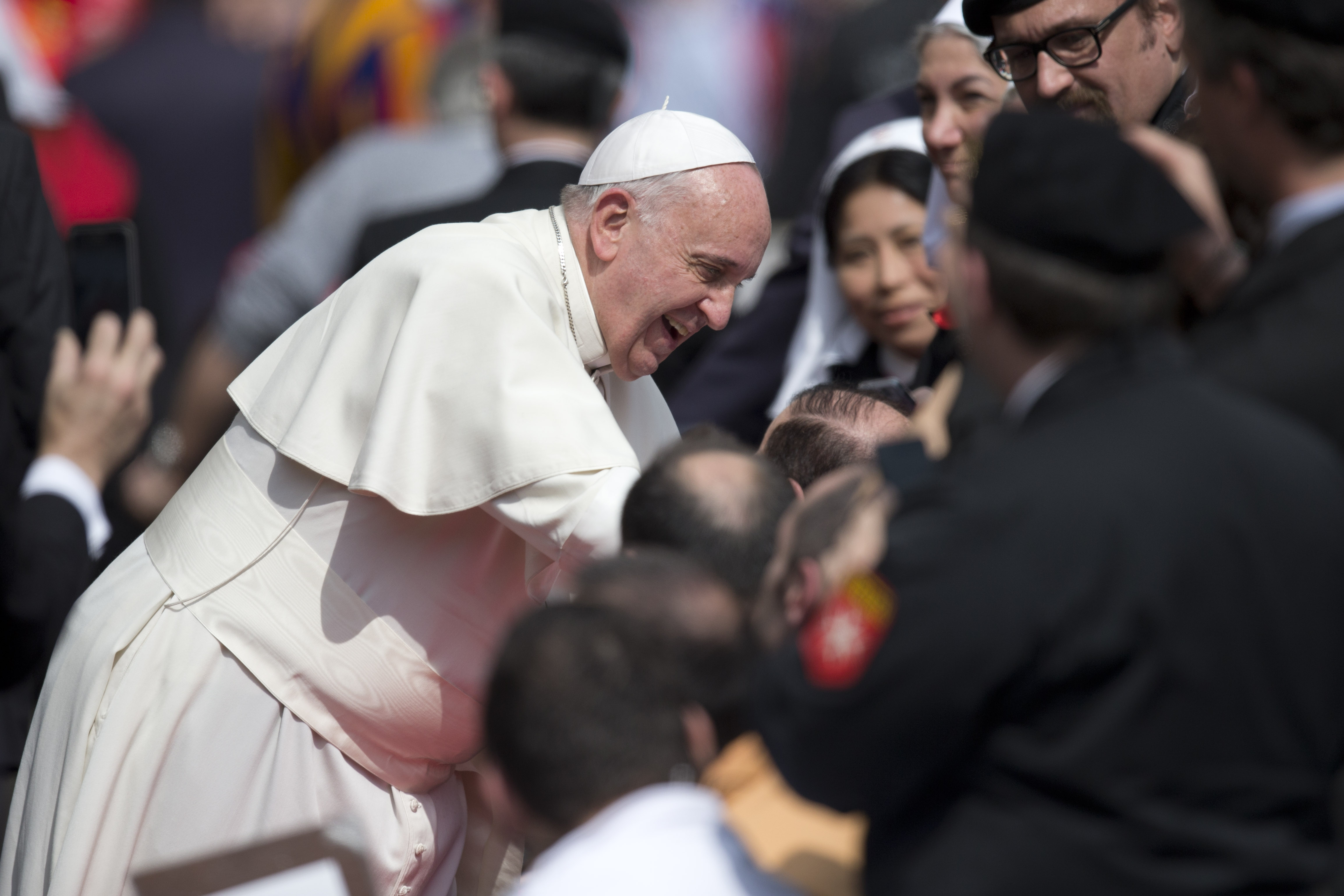Pope Francis has been in office for a year, but none of the boxes in which constituencies want to put him ever quite fit.
After all, is he the culturally savvy pope who tweets, takes selfies in St. Peter's Square and became the first pontiff to grace the cover of Rolling Stone?
Is he the liberal darling, who advocates Holy Communion for divorcees, says civil unions could be acceptable, invites mothers to nurse their babies during Mass at the Vatican, says women should have a greater presence in the decision-making areas of the church and was the Person of the Year for the gay magazine The Advocate?
Or is he the closet hard-line pope, who has not abandoned traditional Catholic teachings on abortion, gay marriage or women priests, who moved swiftly to overhaul the Vatican's banking structure and regulations, and who was the choice for Time magazine's Person of the Year.
The confusing answer is "yes," he is all of those, and "no," he is none of those.
"To paint the pope as some sort of Superman, a star, is offensive," Francis said in a recent interview with Italian newspaper Corriere della Sera. "The pope is a man who laughs, cries, sleeps calmly and has friends as everyone else. A normal person."
Clearly, he is popular. He has more than 10 million followers on Twitter and was viewed favorably by 85 percent of United States Catholics in a recent Pew Research study. Further, Facebook followers of Catholic News Service are up tenfold and monthly online page views of the National Catholic Reporter are up 44 percent in the last year.
But while attendance has risen in Italian parishes since Francis became pope, the Pew study found there had been "no measurable rise in the percentage of Americans who identify as Catholic ... nor has there been a statistically significant change in how often [U.S.] Catholics say they go to Mass."
Still, Catholic conservatives, who fretted over the pope's "who am I to judge" comment about homosexuals and his statement that "the vast majority of [sexual] abuse occurs in the home environment and the neighborhood," ostensibly glossing over the priest sexual abuse scandal of the last decade, have not abandoned the church.
Indeed, said American Cardinal Timothy Dolan in a recent "Meet the Press" interview, he has seen "a little angst" but not "a lot of massive discontent" from conservatives who are often the most loyal Mass-goers and some of the biggest donors to the church.
Francis, the former Cardinal Jorge Mario Bergoglio, appears - in general - to be a transcendent figure, not abandoning the moral teachings and precepts of the church but aware those teachings and precepts are often misunderstood in a changing world and desiring to impart them in a new way.
The first Jesuit pope is neither liberal nor conservative, Maureen Ferguson, senior policy adviser for The Catholic Association, wrote for Fox News, but simply "authentically Catholic."
Francis is saying the liberal and conservative labels are "not the way to sell the faith," according to John Garvey, president of the Catholic University of America. "The most interesting thing about him ... is his emphasis on mercy, and his repeated talk about Jesus and the Gospels and the primacy of charity, rather than rules and laws.
The style of Francis, the first pope from the Americas, has "a way of taking being Catholic out of politics, and situating it in the real world," he said, "and that's been a really nice thing, I think."
Francis, for instance, recently preached with compassion about failed marriages, calling divorce a "misfortune" that should evoke caring rather than denunciation.
When a marriage fails, he said, we must "accompany those people who have had this failure in their love. Do not condemn; walk with them."
Or, on same-sex civil unions, Francis affirmed marriage was between a man and a woman but said the church might accept some types of them because they protect property rights and health care access.
His humility and love for humanity, evidenced in such acts as washing and kissing the feet of inmates, out-of-the-blue telephone calls to ordinary people, inviting homeless men to his small birthday celebration and his decision to live in a modest Vatican guesthouse rather than the apostolic apartments, also are attractive to many, and especially younger Catholics.
So, although he doesn't fit comfortably in a specific box, the fact he is a hard-liner on love and respect for all is a good foundation on which to base his papacy.

